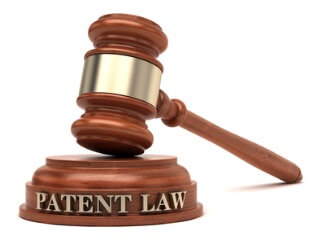 The award of attorney fees to prevailing parties in patent infringement cases is governed by § 285 of the Patent Act, which states that “[t]he court in exceptional cases may award reasonable attorney fees to the prevailing party.” 35 U.S.C. §285. The award of fees hinges on the definition of the word “exceptional.” The Federal Circuit court established the definition of “exceptional” in Brooks Furniture Mfg., Inc. v. Dutailier Int’l, Inc.
The award of attorney fees to prevailing parties in patent infringement cases is governed by § 285 of the Patent Act, which states that “[t]he court in exceptional cases may award reasonable attorney fees to the prevailing party.” 35 U.S.C. §285. The award of fees hinges on the definition of the word “exceptional.” The Federal Circuit court established the definition of “exceptional” in Brooks Furniture Mfg., Inc. v. Dutailier Int’l, Inc.
According to Brooks, a case is “exceptional” only if the court finds litigation-related misconduct of a “sanctionable magnitude” or determines that the litigation was both “brought in subjective bad faith” and “objectively baseless.” Brooks Furniture Mfg., Inc. v. Dutailier Int’l, Inc., 393 F.3d 1378, 1381 (Fed. Cir. 2005).]. A case is considered “exceptional” when there was “some material inappropriate conduct related to the matter in litigation, such as willful infringement, fraud or inequitable conduct in procuring the patent, misconduct during litigation, vexatious or unjustified litigation, … or like infractions.” Id. In addition, this “exceptional” nature must be proven by a “clear and convincing” standard. Brooks at 1382. In other words, few cases rise to the level of “exceptional” by this strict standard.
This rigid and high bar for establishing “exceptional” cases has been substantially loosened and lowered by two recent Supreme Court decisions, Octane Fitness v. Icon Health and Fitness and Highmark Inc. v. Alliance Health Management Systems, Inc.. The opinion in Octane, authored by Justice Sotomayor, creates a new definition of “exceptional,” one that is more reflective of its common usage. “An ‘exceptional’ case…is simply one that stands out from others with respect to the substantive strength of a party’s litigating position (considering both the governing law and the facts of the case) or the unreasonable manner in which the case was litigated.” Octane at 1751. The Court held that the prior standard imposed an unnecessarily rigid and inflexible framework onto a statute, which is inherently flexible. Section 285 simply imposes a discretionary standard; fees may be awarded in “exceptional” cases, the Patent Act does not define “exceptional” and the district courts are entitled to use discretion in determining the nature of each case. The Court in Octane held that the prior standard “impermissibly encumber[ed] the statutory grant of discretion to district courts.” Id. at 1754. In addition, the discretionary nature of the statute, which does not impose any evidentiary standard, makes the “clear and convincing” standard from Brooks inapplicable. Id. at 1758.
The Highmark decision, also authored by Justice Sotomayor and published on the same day, relies heavily on the court’s decision in Octane. It further changes the standard of review for appeals of district court determinations of attorney fee awards which had previously been de novo. On the basis of the Octane opinion, which characterized § 285 as a discretionary statute, the Court held that all aspects of a district court’s exceptional-case determination under § 285 of the Patent Act should be reviewed for abuse of discretion. Highmark at 1747.
What does this mean for litigants? What kinds of changes will this cause in the landscape of the patent law? It is likely that settlements will become a more appealing option due to the potential for big losses solely in the discretion of the Court. In addition, the abuse of discretion standard decreases the likelihood of reversal of these types of decisions on appeal. The patent infringement world is fraught with complicated legal sandtraps, especially now, where you no longer need to be abusive or materially inappropriate to be “exceptional.”
